Brain Food: The Truth About ADHD, Energy Crashes, and Nutrition Myths | Ep 041
For many entrepreneurs with ADHD, focus struggles, brain fog, and energy crashes feel like an unavoidable part of daily life. But what if your nutrition is playing a bigger role than you think?
In this article, we’ll break down the key insights shared by Christina “Blue” Hooper, Victoria “Queen V” Caldwell, Melanie Branch, and Certified Functional Nutrition Coach Rhiannon Neuharth, CFNC CTIC, during their discussion on ADHD, food, and brain health.
🎥 Watch the Episode
The Gut-Brain Connection and ADHD
One of the foundational concepts discussed is the gut-brain axis—the link between your digestive system and brain function.
When your gut is inflamed or imbalanced, it can trigger a cascade of symptoms like:
Increased distractibility
Mood swings
Brain fog
Energy crashes
Rhiannon emphasized how gut health issues like leaky gut, poor digestion, or food sensitivities can exacerbate ADHD symptoms. Healing the gut helps regulate neurotransmitters like dopamine and serotonin, which are crucial for focus, motivation, and mood stability.
Why Synthetic Vitamins May Harm ADHD Brains
Many people reach for multivitamins or energy supplements to “fix” focus or fatigue. However, not all vitamins are created equal.
Rhiannon explained that synthetic vitamins—particularly synthetic forms of B vitamins like folic acid—can backfire, especially for individuals with MTHFR gene mutations. These genetic mutations impair the body’s ability to process synthetic vitamins properly, often leading to increased inflammation or worsened symptoms.
Choosing whole-food-based, bioavailable supplements instead ensures your body can absorb and use the nutrients effectively without added stress on your system.
How Inflammation, Genetics, and Sensitivities Affect Brain Function
Inflammation doesn’t just affect the body—it directly impacts the brain. Chronic inflammation, often driven by processed foods, sugar, or hidden food sensitivities, creates extra strain on your cognitive functioning.
Additionally, genetic factors like MTHFR mutations or histamine intolerance can contribute to:
Sleep issues
Energy instability
Foggy thinking
Anxiety and hyperactivity
Rhiannon highlighted how understanding your unique body—through functional labs or elimination diets—can reveal hidden factors influencing your focus and mental clarity.
Common Nutrition Myths About ADHD (and Why They Fail)
Throughout the episode, the hosts addressed several nutrition myths often recommended to ADHD individuals:
“Just cut out sugar and gluten.”
“Take XYZ supplements and you’ll focus better.”
“Follow this strict diet plan.”
The problem? One-size-fits-all advice rarely works.
ADHD brains thrive on flexibility and personalization. Strict diets or all-or-nothing plans often lead to overwhelm, restriction, and eventual burnout.
Instead, Rhiannon encourages gradual shifts toward whole foods, personalized supplement protocols, and sustainable routines tailored to your individual needs and sensitivities.
Why Protein is Crucial for ADHD Focus
One simple, actionable takeaway: Most ADHD entrepreneurs aren’t getting enough protein.
Protein plays a vital role in producing neurotransmitters like dopamine, which governs attention and motivation. Skipping breakfast, grabbing quick carbs, or relying on caffeine sets up a focus crash later in the day.
Some ADHD-friendly ways to boost protein intake include:
Keeping easy-to-grab options like boiled eggs or chicken strips
Adding collagen or protein powder to smoothies or coffee
Incorporating protein-rich snacks like edamame or cheese throughout the day
Simplifying Meal Prep to Reduce Overwhelm
Meal prep can feel overwhelming, especially for neurodivergent entrepreneurs juggling businesses, families, and daily tasks.
To make healthier choices easier, the discussion suggested:
Batch prepping protein options and storing them in plain sight in the fridge
Keeping ingredients simple (think: one protein, one carb, one veggie)
Minimizing decision fatigue by eating similar meals repeatedly
Rhiannon also shared how she organizes her kitchen to make nutritious choices the path of least resistance — removing visual clutter, pre-chopping ingredients, and freezing meals in individual portions.
Final Takeaways
The key theme throughout the conversation is personalization and simplicity. There is no universal ADHD diet. Instead, success lies in:
Supporting gut health
Identifying food sensitivities and genetic factors
Reducing inflammation through sustainable nutrition choices
Prioritizing protein and balanced meals
Simplifying prep to avoid overwhelm
Making small, consistent shifts based on your body’s specific needs can lead to clearer focus, improved energy, and fewer crashes—without relying on restrictive diets or complicated protocols.
And if you’re looking for ongoing support to apply what you’ve learned, simplify your systems, and build a business (and life) that works for your neurodivergent brain—The Neuro-Spicy Academy is here for you.
Inside, you’ll get access to trainings like this one, a supportive community, practical strategies tailored to how you think, and guidance designed to help you grow sustainably—without burnout or overwhelm.
👉 Join the Academy today: https://neurospicyacademy.com/join









